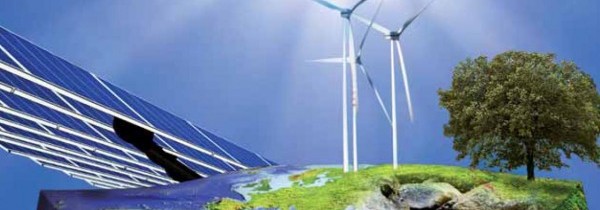‘Clean Energy’ Is Cooling The Economy And Damaging The Environment
Many people take this advice to heart, especially when it comes to environmental regulations. Policymakers have eagerly supported pre emptive green measures like clean energy subsidies without first waiting for scientific verification or considering their broader economic costs. After all, who wants to be “sorry” when it comes to environmental degradation? “No one” is the easy answer, especially when someone else is picking up the bill.
However, as we continue to pile precautionary energy policies onto a struggling economy, we’re bumping into an inconvenient truth. Boosting “clean” energy is damaging the economy — and, ironically, the environment.
That’s not precautionary — that’s risky!
Indeed, a recent study published in the Journal of Economic Growth estimates that scaling back onerous energy regulations could generate $100,000 in new income for each American.
Likewise, research for an upcoming conference at the George W. Bush Institute shows that GDP can decrease by over 0.4 percent for every $100 billion that regulations and subsidies redirect to clean energy.
If we continue these inefficient policies, the next of generation of Americans may realize incomes more like those in Italy than in the United States today – a drop of about $15,000 per capita in today’s dollars.
What’s more, energy regulations that promise to save our planet may actually be harming it. The environment does better when people make more from less. This common-sense observation enjoys support from researchers such as Alan Krueger, recent Chair of the President’s Council of Economic Advisers. Krueger and others find evidence that economic growth and environmental quality often advance in tandem.
Scholarship like this suggests that competitive markets could be the best protection against economic and environmental peril. But energy policy seems to have a mind of its own.
Consider the White House’s recently released Climate Action Plan, which promises to tighten restrictions on new and existing power plant emissions while centrally directing more taxpayer resources to clean energy projects.
Despite the spotty record of government energy investments, PresidentBarack Obama has called on “all nations” to increasingly serve energy demands “from clean sources like wind and solar power.”
America’s recent surge in oil and natural gas production puts this country in an enviable position to sell excess supplies abroad. Unfortunately, green regulatory burdens may be extinguishing this opportunity.
Oil exports have essentially been banned since the 1970s and the Department of Energy has been delaying approval for natural gas export terminals. Never mind that increased supply of natural gas worldwide could reduce carbon emissions while delivering a powerful return to the U.S. economy.
State-level energy regulations are also undermining economic growth. New York and Pennsylvania sit atop the Marcellus Shale, a bedrock that holds an estimated 500 trillion cubic feet of natural gas.
Pennsylvania moved quickly to unlock this resource and saw per-capita incomes in drilling-intensive counties increase by as much as 19 percent between 2007 and 2011.
New York took the opposite tact and installed a moratorium on hydraulic fracturing. Lifting this ban could let local workers enjoy income gains of 15 percent over the next four years, adding upwards of $30,000 to the annual income of a family of four.
Historically, the U.S. economy has shown a remarkable resilience, quickly bouncing back after even sharp recessions. Four years into the current recovery, however, the American economy remains stuck below typical long-term growth trends.
Energy regulations in the name of precaution are contributing to this national malaise. They’re doing more to cool our economy than our planet.
Dino Falaschetti, Ph.D., and Matthew Denhart are research fellows at the George W. Bush Institute. Falaschetti also serves as executive director of the Property and Environment Research Center in Bozeman, Montana.
Fonte: forbes.com



